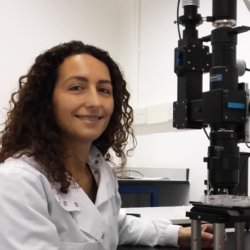The emerging role of cardiac fibroblasts in heart physiology and pathology
Applications are invited for a 3-year PhD position within the Cardiovascular Research Group at the University of Surrey, in close collaboration with research groups at University College London and Cardiff University.
Duration
3 yearsApplication deadline
Funding source
Self-funded students onlyFunding information
The successful student will be required to provide their own funding for tuition fees and stipend (living costs). Most of the experimental costs will be covered by the supervisor from current Royal Society and BHF grants, although the student may be required to provide a partial contribution towards bench fees.
About
The heart is made up of many different cell types – myocytes which enable contraction, vascular cells which construct the blood supply network and fibroblasts which are traditionally thought to provide structural support. In recent years, however, it has become clear that fibroblasts are not just a passive structural scaffold, but play an active role in heart function, particularly in disease where they become activated and their number increase to >70% of all heart cells.
This PhD project will investigate the so far under explored mechanisms through which fibroblasts communicate with the myocytes and stem cells, and affect cardiac function in the normal heart and in response to cardiac diseases. The novel and exciting approach has the potential to identify new therapeutic targets which manipulate fibroblast contribution to heart function in disease.
The successful candidate will be trained in cardiac electrophysiology, tissue engineering, cardiac stem cell biology, molecular biology and advanced imaging methods. The main methodologies used in this project will be cell culture, western blotting, quantitative real-time PCR, exosome purification and characterisation, immunofluorescence, confocal microscopy, and multicellular electrophysiology methods including multi-electrode arrays and optical mapping.
References
- Johnson RD & Camelliti P. Role of Non-Myocyte Gap Junctions and Connexin Hemichannels in Cardiovascular Health and Disease: Novel Therapeutic Targets? Int J Mol Sci (2018).
- Quinn TA, Camelliti P, Rog-Zielinska EA, Siedlecka U, Poggioli T, O'Toole ET, Knöpfel T, Kohl P. Electrotonic coupling of excitable and nonexcitable cells in the heart revealed by optogenetics. Proc Natl Acad Sci U S A (2017).
- Kohl P & Camelliti P. Fibroblast-myocyte connections in the heart. Heart Rhythm (2012).
- Vasquez C, Mohandas P, Louie KL, Benamer N, Bapat AC, Morley GE. Enhanced fibroblast-myocyte interactions in response to cardiac injury. Circulation Research (2010).
Eligibility criteria
Applicants should have:
- A first or upper second class honours degree (or equivalent) in a relevant subject area including; Biomedical Sciences, Biological Sciences, Biomedical Engineering, Physiology or related disciplines.
- UK or European nationality
- Self-motivation, deep interest in research and ability to think and work independently
- Fluency in English language and good communication skills
- An MSc in cardiovascular/molecular science with merit or distinction and/or previous research experience in molecular biology or electrophysiology would be advantageous.
How to apply
Informal enquiries should be directed to Dr Patrizia Camelliti (p.camelliti@surrey.ac.uk).
Applications must include a cover letter, research statement and CV with contact details of two academic references and apply though the programme page: https://www.surrey.ac.uk/postgraduate/chemical-and-process-engineering-research-phd.
Studentship FAQs
Read our studentship FAQs to find out more about applying and funding.
Application deadline
Contact details

Studentships at Surrey
We have a wide range of studentship opportunities available.
